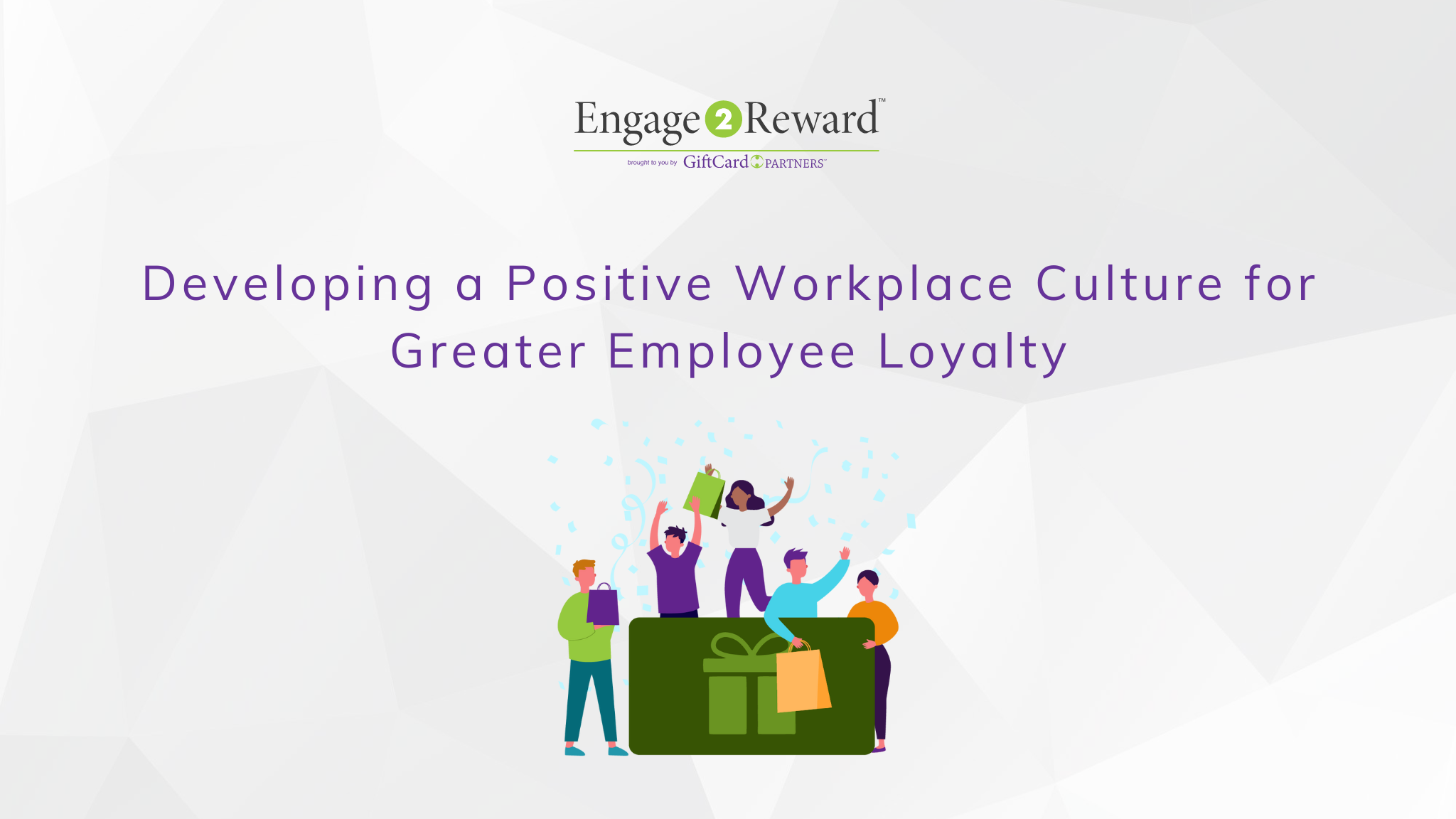Is employee loyalty a priority for your organization? Recent studies show that only 32% of full- and part-time employees are engaged, while 17% are actively disengaged (Gallup). This lack of employee engagement can lead to decreased employee loyalty and commitment to the organization, which can result in high turnover rates and decreased productivity.
In this article, we will explore strategies for cultivating a positive workplace culture that fosters employee loyalty, driving long-term growth, and ensuring the sustainability of your business. Even small changes in your approach to employee engagement and appreciation can lead to significant improvements in retention, productivity, and overall job satisfaction.
1. Establish Clear Objectives
Establishing well-defined objectives for your workplace culture can help to ensure alignment between your organization's values and goals. This way you can cultivate a culture that supports your overarching business strategy while addressing the needs of your employees. Here are some specific aspects to consider when setting your objectives:
- Align with business objectives: Your loyalty program should align with your business goals, such as increasing sales, customer retention, or referrals.
- Meet customer needs: It’s best to have your employee loyalty program revolve around your customer’s needs. For example, you can offer rewards that incentivize repeat business, referrals, or social media engagement.
- Measure program effectiveness: Defining specific targets for your program allows you to track and measure its effectiveness, make data-driven decisions, and make changes as needed.
Defining your goals is key to creating an employee loyalty program that aligns with your business objectives and meets the needs of your customers. By setting specific targets and measuring your progress, you can ensure that your program is effectively driving value for your business.
2. Promote Work-Life Balance
Work-life balance is essential for maintaining employee well-being and preventing burnout. By promoting a healthy balance between work and personal life, you can help employees feel more satisfied and committed to the organization. Here are some ways to promote work-life balance:
- Offer flexible work arrangements: Providing options such as remote work, flexible hours, or compressed workweeks can help employees manage their personal and professional responsibilities more effectively.
- Encourage time off: Encourage employees to take breaks, use their vacation time, and unplug from work when necessary to recharge and maintain their well-being.
- Foster a supportive environment: Create a culture where employees feel supported in their pursuit of work-life balance and can openly discuss their needs with managers and colleagues.
Promoting work-life balance can help increase employee loyalty, leading to a more positive workplace culture.
3. Recognize and Reward Employee Contributions
Acknowledging and rewarding employees for their hard work and accomplishments is essential for fostering loyalty and commitment. Here are some ways to recognize and reward employee contributions:
- Offer regular praise and feedback: Provide employees with regular feedback and recognition for their achievements, both in private and public settings.
- Implement a rewards program: Create a rewards program that offers incentives for outstanding performance, such as bonuses, promotions, or professional development opportunities. For example, consider offering TJ Maxx gift cards to your employees as a way to incentivize loyalty and enhance workplace satisfaction, while providing them with a wide variety of affordable shopping options.
- Celebrate successes: Organize team events or celebrations to acknowledge and share employee accomplishments with the entire organization.
Recognizing and rewarding employee contributions can help motivate and engage employees, leading to a more positive workplace culture and greater employee loyalty.
4. Encourage Open Communication
Open communication is an essential component of a positive workplace culture. When employees feel comfortable sharing their ideas, concerns, and feedback, they are more likely to feel engaged and committed to the organization. Here are some ways to encourage open communication:
- Foster a safe environment: Create an atmosphere where employees feel comfortable sharing their thoughts without fear of judgment or retribution.
- Implement feedback channels: Establish channels for employees to provide feedback, such as regular one-on-one meetings, suggestion boxes, or anonymous surveys.
- Actively listen and respond: Demonstrate that you value employee input by actively listening and responding to their feedback.
Encouraging open communication can help build trust and loyalty among employees, ultimately contributing to a more positive workplace culture.
5. Invest in Employee Development
Investing in your employees' professional development is not only beneficial for the growth of your organization but also crucial for building a positive workplace culture that fosters employer loyalty. By providing opportunities for employees to learn and grow, you demonstrate your commitment to their success and well-being. Here are some ways to invest in employee development:
- Offer training and development programs: Provide employees with access to training programs, workshops, or online courses that can help them develop new skills and knowledge relevant to their roles.
- Encourage mentoring and coaching: Establish mentoring or coaching relationships within your organization to facilitate knowledge sharing and skill development among employees.
- Support career advancement: Offer opportunities for employees to advance their careers within the organization by providing clear career paths and promoting from within whenever possible.
Investing in employee development not only improves employee satisfaction and performance but also contributes to a positive workplace culture that encourages loyalty and long-term commitment.
Conclusion
Cultivating a positive workplace culture is vital for improving employee loyalty and long-term organizational success. By incorporating the principles laid out in this article, you can foster an environment where employees feel valued and dedicated. Continuously adapting to employees' needs will drive innovation, productivity, and overall business success.











